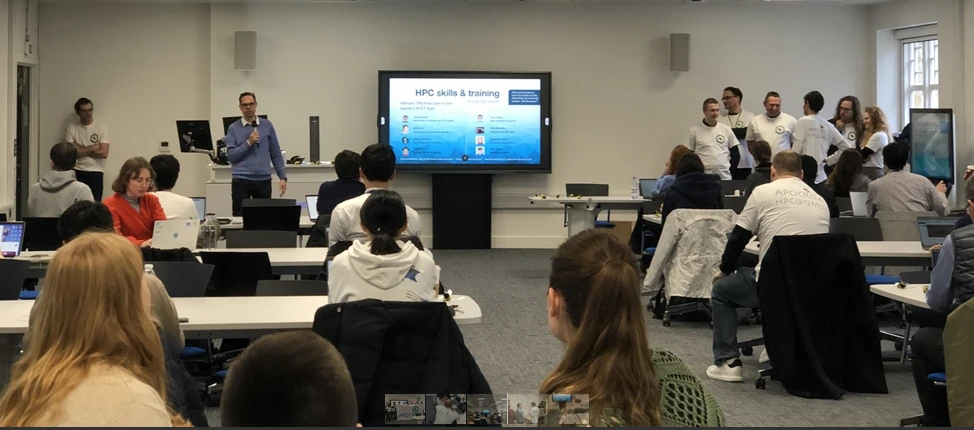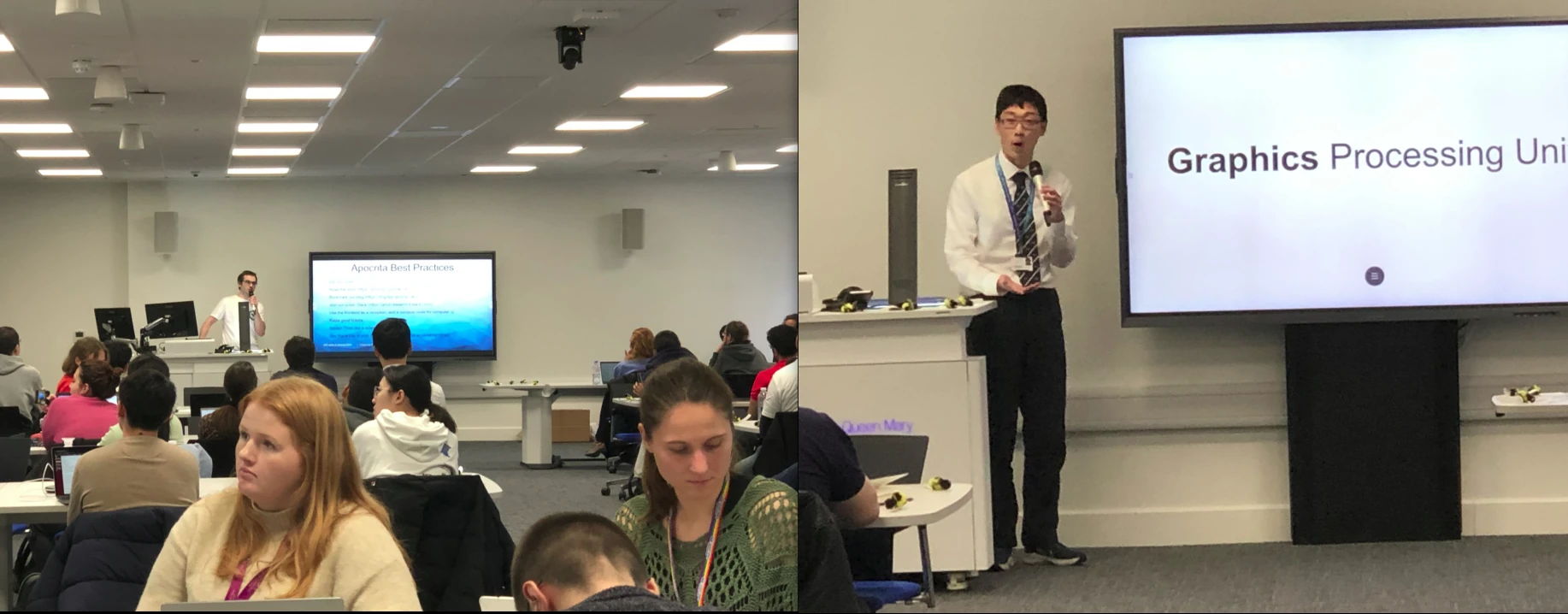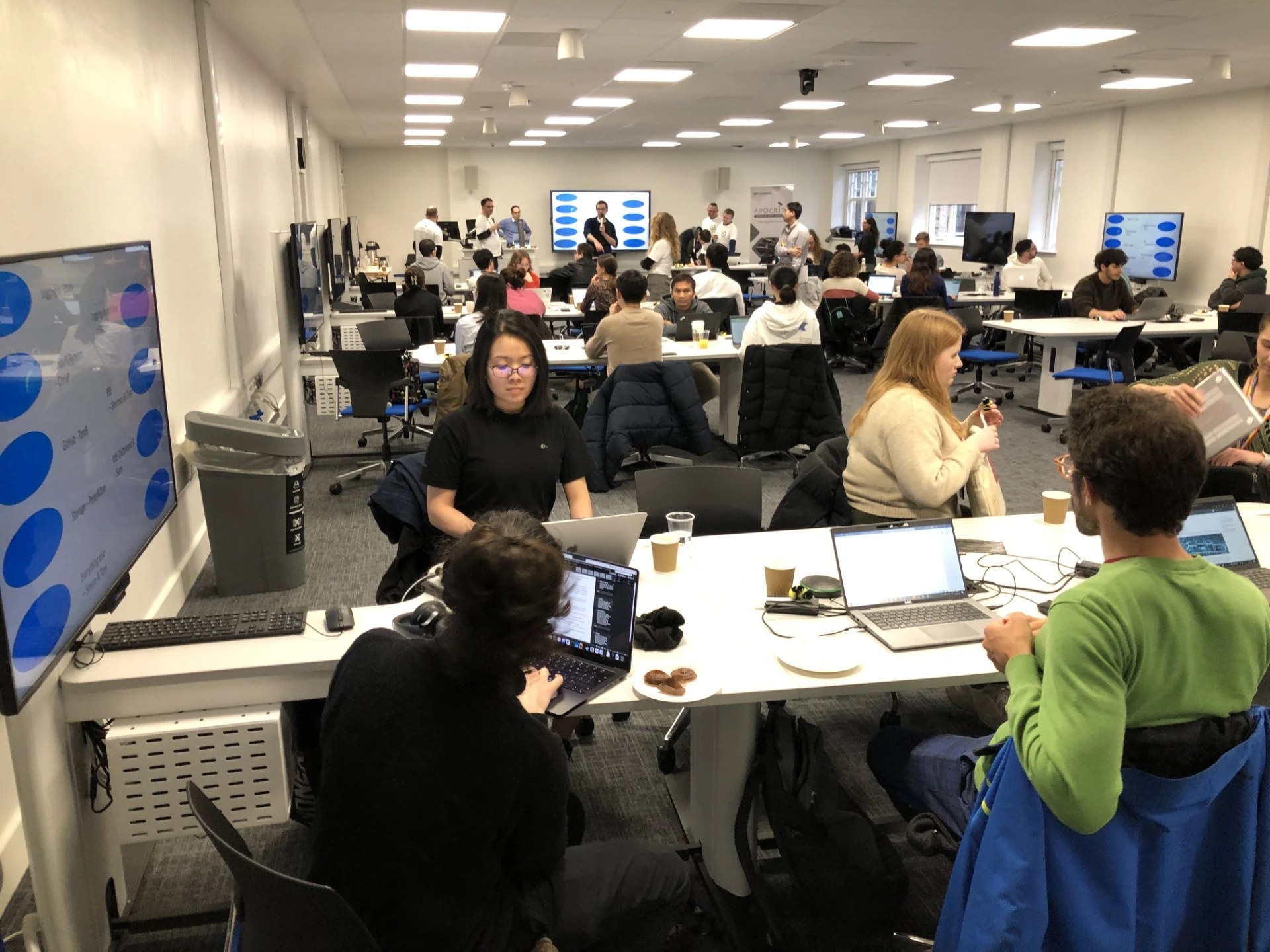HPC Leap Day Event¶
The High Performance Computing (HPC) team organised an event to celebrate February's bonus day this year. The goal was to introduce the HPC team members to the research community at QMUL, and to have the opportunity to ask the HPC expert in-person about any issue related to the performance of HPC jobs in Apocrita.
Here is a quick summary of what we covered in the session:
1. Presentation of the HPC team¶
On Thursday 29th of February, we offered an in-person event titled HPC skills and training 2024 for the research community at Queen Mary University of London. Pictured below, Thomas King, the Assistant Director for Research within IT Services introduced the HPC team and the agenda.
Simon Butcher provided an introduction to High Performance Computing which allows to run complex calculations and simulations that you might not be able to run in your own laptop. Julita Inca highlighted the importance of using Linux on supercomputers. Vitaly Kukchenkov showed how to launch an HPC job in the cluster. Peter Childs gave an overview of the storage and backup activities to maintain Apocrita. Giles Greenway talked about the RSE team roles and responsibilities, and he presented Samantha Lawson who demonstrated use of RStudio using the OnDemand service; and Sherman Lo who is a developer with a lot of experience in using Graphical Processing Unit (GPU) and Message Passing Interface (MPI).
In the following picture, we can see Chris Pearse talking about good practice on Apocrita. Also, Sherman Lo, who spoke about GPUs on Apocrita.
2. Coffee Break¶
We had a wide selection of pastries during the coffee break. We listened to our HPC users' concerns, and they had a great opportunity to talk with an HPC expert directly. Users heard lots of suggestions and improvements to make their lives easier.
3. Ask the expert¶
We provided support and HPC expertise to our users in the context of the Apocrita HPC cluster, assisting with issues related to user accounts, HPC resource requests, moving, accessing, and editing data.
We teamed up our attendees with our HPC experts and they had the chance to move around different groups to solve their issues.
4. Massive thanks¶
Each team member's contributions were invaluable and delivered with expertise, enthusiasm, and teamwork. Thank you for being an integral part of our success.
Thanks to all attendees for taking part in this fantastic HPC workshop. Attendees were willing to learn Linux and HPC skills to improve scientific research at QMUL, and to shape a modern future for everybody. It was also a great opportunity to hear from our users about their research and how we can improve our services in the future.








